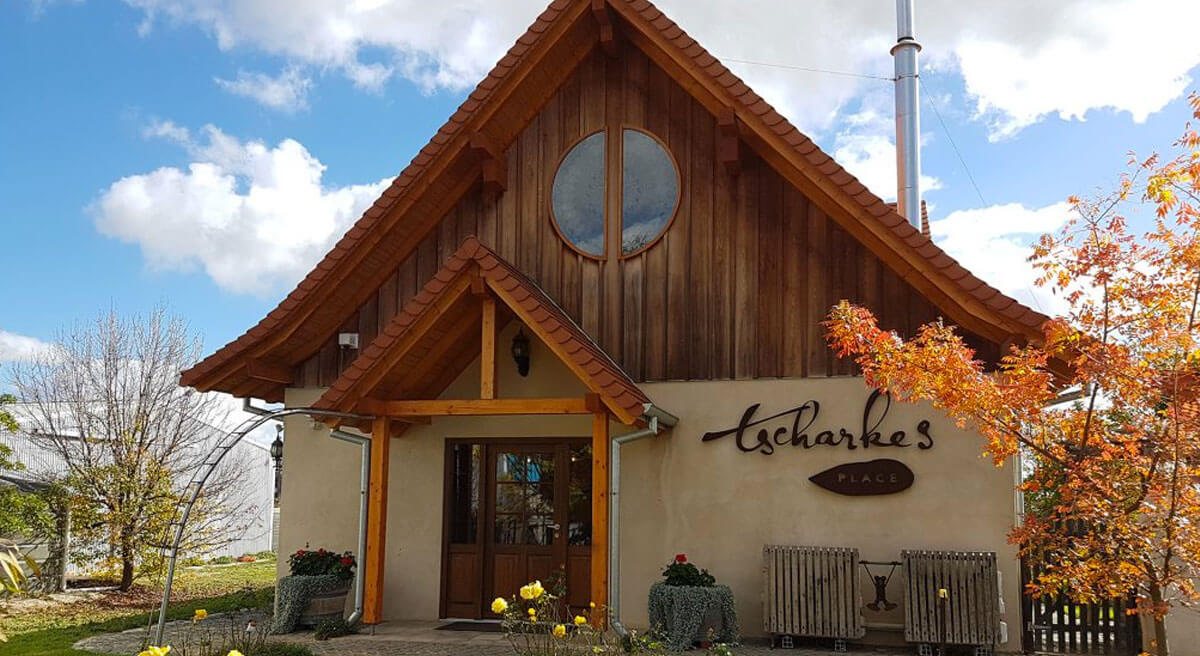Sustainability in any industry is a commitment. Like any commitment, sacrifices must be made, and challenges must be faced before the reward can be enjoyed. For Tscharke, their commitment to sustainability is taken so seriously that there was barely enough time to celebrate their win in the Sustainable Wine Tourism Practices category in the Best of Wine Tourism Award.
“I’m sorry, the team are out in the vineyard this week spreading BD500 as one of the biodynamic preparations, which is a bit of a no-phone-focussed-activity… It’s going to be a toughie to get on to any of us,” says Tscharke’s Kristen Miers in an email when trying to schedule an interview.
It couldn’t worry me less. To be honest, a wine team who are too busy to talk to the media about an award they’ve won for sustainability, due to working in the vineyards to better their sustainability, speaks volumes of their passion and commitment to the cause. If Damien Tscharke and his team keep their heads down and get the job done, we’ll all be better off for it.
I have been lucky enough to visit Tscharke in the Barossa and see their impressive operations first-hand. Tscharke are an organic and biodynamic farm and vineyard, which is a momentous undertaking. However, Tscharke have stretched themselves to consider sustainable practices in every facet of the business to try and increase efficiency and decrease waste and energy expenditure. These considerations not only impact the vineyard, winery, warehouse and cellar door, but their choice in grape varieties, glassware and packaging.
These considerations are so integrated they aren’t entirely obvious until you start to hear the Tscharke story. Tscharke’s Place greets you first, a cellar door that looks like it belongs in Hobbiton. Designed by Damien and his wife and partner in the winery Eva, the cellar door was shipped from Germany and took over three years to make. It is truly unbelievable.
A stark contrast to Tscharke’s Place but just as impressive is the Underground Barrel Hall, which houses 1,000 vessels under élevage in a state-of-the-art facility, ensuring year-round stabilised temperatures and humidity. The huge undertaking was completed in 2015 and is unique to the region, although has proved an invaluable asset given how effective it has been in the sensitive cellaring of wines and optimising barrel longevity.
Above ground, the sustainable practices continue through the crossflow ventilation of the warehouse which harvests night-time air, replacing the need for refrigeration. Solar power meets their energy needs and for a winery of Tscharke’s size that is no mean feat. Waste water management has been integrated with stormwater harvesting to supplement vineyard irrigation and during vintage, the winery’s grape marc is composted and incorporated back into the vineyards.
Tscharke’s commitment to sustainability is inspiring and setting a precedent for sustainable practices in wineries. A visit to Tscharke is a masterclass in how to harmoniously combine science and art for the greater good. While the result is still a collection of delicious wines, the impact on the environment is overwhelmingly positive. We’re all better off for wineries as committed, passionate, imaginative and hardworking as Tscharke.
No interview needed.
Story written by 2020 Wine Media Cadet, Lachlan Aird

